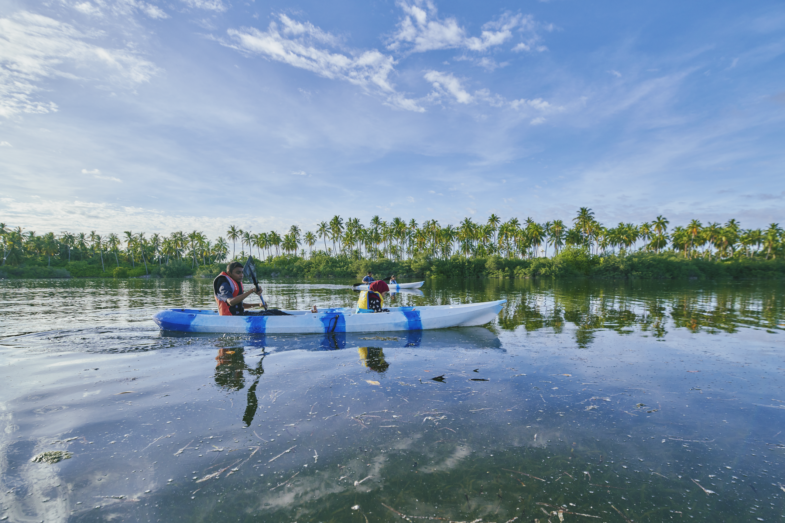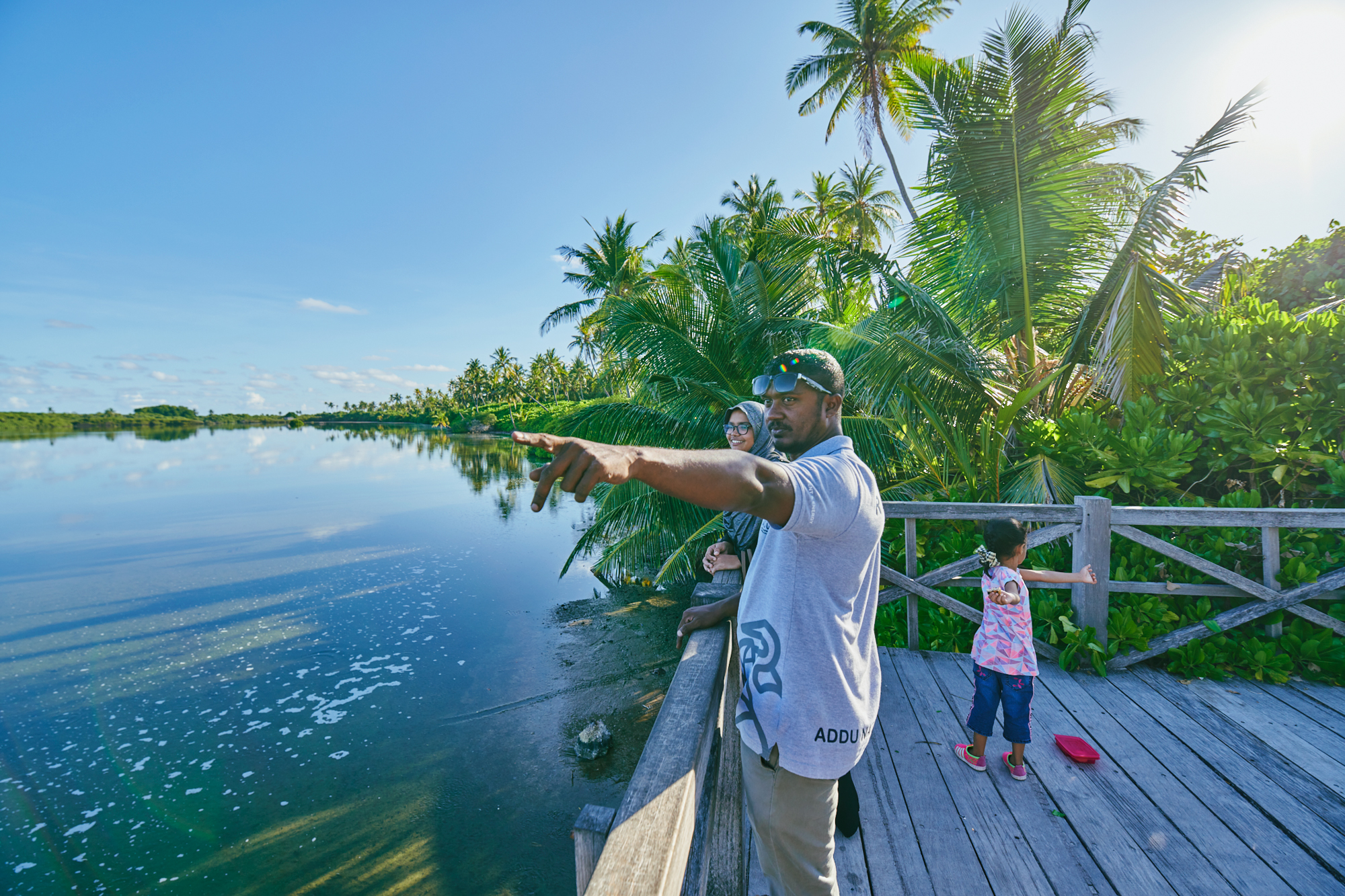This Article is originally developed for Climate Tracker & GCCA+ Stories and published on 18 May 2020 on the following link https://international-partnerships.ec.europa.eu/news-and-events/stories/gcca-maldives-beyond-tourism-helping-people-and-nature-thrive_en
It’s a sunny morning in the Addu Nature Park. The sky is blue, warm and humid, and although the season for migrating birds is over, the native bird call of the water hen and the cranes carry clearly across the waters of the largest inland protected area in the Maldives.
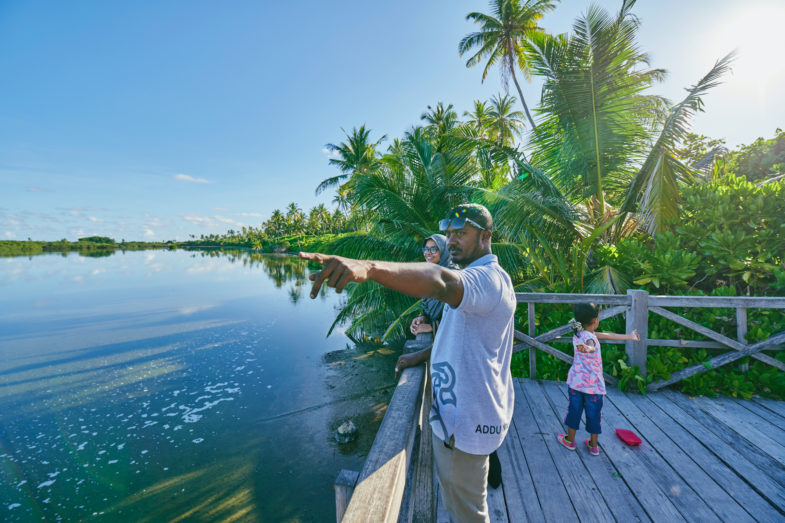
Home to an amazing array of biodiversity including 28 bird species, the Addu Nature Park includes the Eedhigali Kilhi and Koattey protected areas. In the local Dhivehi language, koattey means ‘fortress’ – and at 570 hectares it is the largest protected area of its kind in Maldives, a haven for migratory birds to rest and recuperate during the cold weather.
It’s not just birds that have benefitted – the park has created much-needed livelihoods for many people in the local community. 76 year old Hussan Abdulla is one of several registered coconut collectors who come to the park every morning to collect fallen coconuts which have from the palms. Back home, he removes the husk and sells them to local shops.
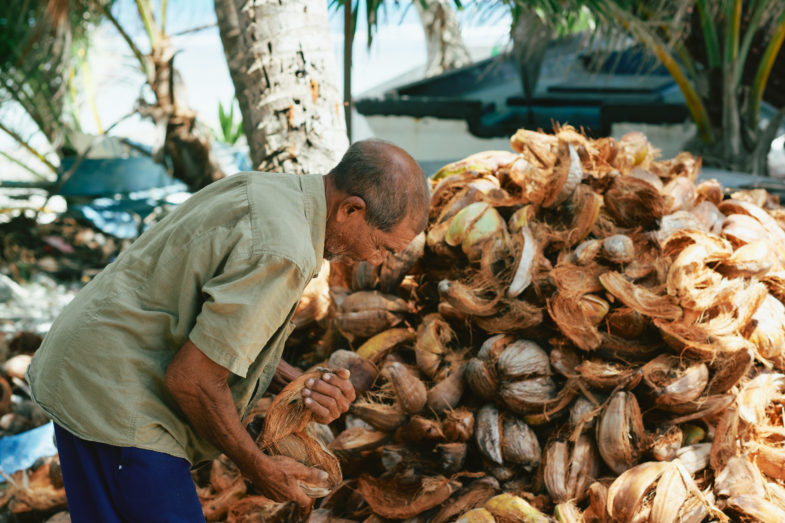
“I have been collecting coconut from this place for the last six years. It gives me enough of an income to meet my daily needs. And going to the park every day keeps me active, even at my age!”
– Hussan Adbulla
The Maldives have long been a poster child for climate action – the archipelago’s former president Mohamed Nasheed famously held a cabinet meeting underwater to draw attention to global warming a decade ago. The island nation, best known for its white sands, palm-fringed atolls and luxury holiday resorts, faces an existential threat from rising sea levels. One of the world’s lowest-lying countries, more than 80 percent of the Maldives’ land is less than one meter above mean sea levels, making its population of around 530,000 people extremely vulnerable to storm surges, sea swells and severe weather.
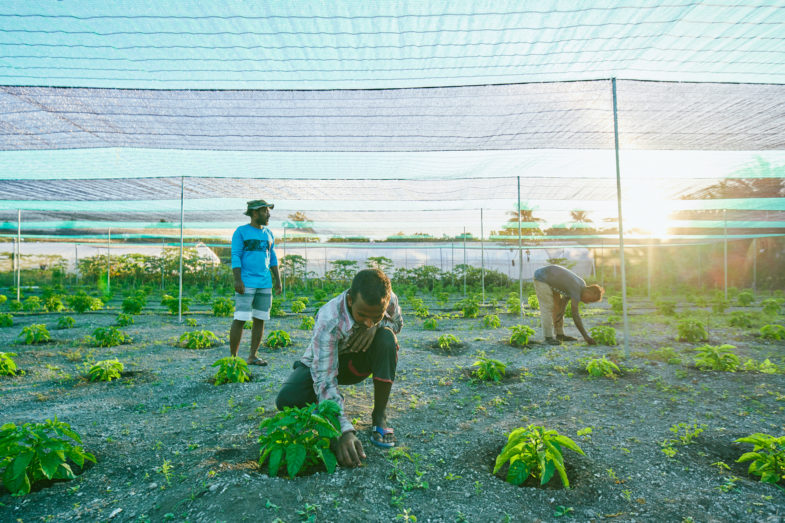
All of which points to the need for urgent climate adaptation and mitigation measures. Within the Addu Nature Park boundaries, land is leased to local communities on the condition they farm the land using both traditional and modern eco-friendly methods. Farmers grow bitter gourds, peppers, bell peppers, cucumbers, sweet melons and butternut squash – and once sold, some of the money goes back into the community.
Meanwhile on the eastern side of Addu Atoll, at the Hulhumeedhoo waste management centre, trash brought from the community is being sorted by the locals. Plastic is shredded for export, glass bottles are crushed into small pieces and mixed into concrete, while leaves, food waste and other organic material is composted and sold back to the farmers to fertilise their crops.
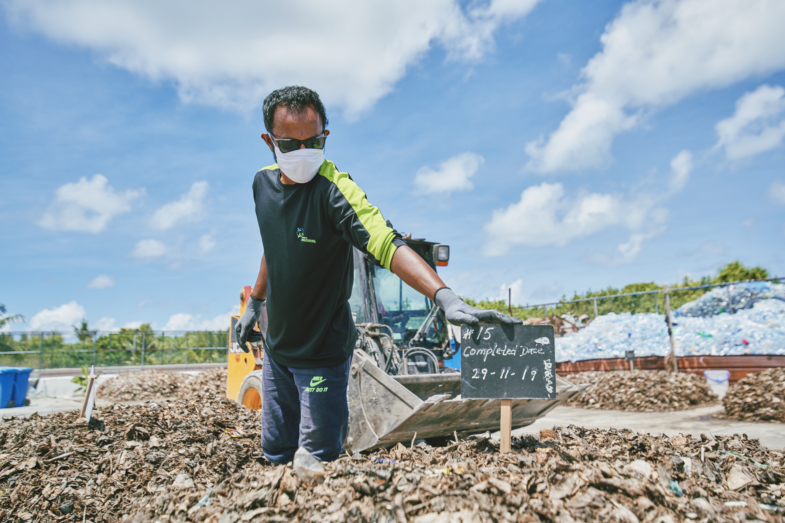
The waste management project in the Addu Atoll is part of the EU’s flagship climate change programme GCCA+. Building on a previous €6.5 million EU funding though GCCA+ and other sources for wetlands conservation and coral reef monitoring from 2009-2015, the current €4million programme aims to increase ecotourism and environmental protection in the south of the Maldives.
Tourism is the Maldives’ life-blood, but transforming it to be more environmentally-friendly is challenging. Addu Atoll attracts both local and international visitors, lured by the lakes, mangroves and scenic cycling routes, as well as the Bedhi bay area, famous for its red mangroves, baby stingrays and sharks. Local mother-of-two Saheema is a frequent visitor with her children.
“Since the nature park was created, the whole place looks better and cleaner. We love it and we often come here to snorkel. I am proud of having a place like this on my island.”
– Saheema
